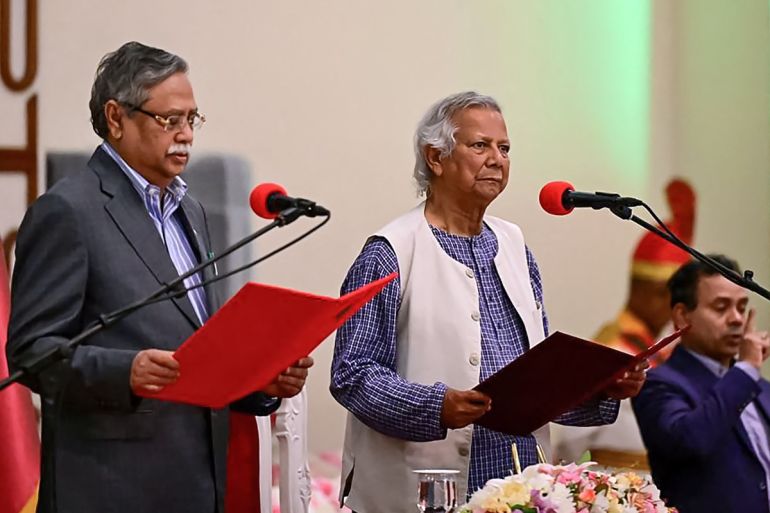A wave of mass resignation has ensued in Bangladesh’s government, as intense protests against the country’s controversial job quota policy have driven key officials to step down.
Between Monday and Saturday, the country’s Chief Justice, Obaidul Hassan, and Central Bank Governor, Abdur Rouf Talukder, announced their resignations, marking a significant escalation in the crisis that has engulfed the Asian nation.
Join our WhatsApp ChannelThe resignations followed weeks of violent protests, primarily led by university students, who have taken to the streets to oppose the government’s job quota system. The situation has spiraled out of control, culminating in Prime Minister Sheikh Hasina fleeing the country to India, effectively ending her 15-year rule, resulting in a caretaker administration that is being led by Muhammad Yunus, a 2006 Nobel Peace laureate.
READ ALSO: UNMISS peacekeepers from Bangladesh build hope through community assistance
The unrest began as a response to Bangladeshi government’s job quota system, which allocates a substantial portion of government positions to specific groups, including the descendants of freedom fighters, women, and people with disabilities. Critics of the policy argue that it perpetuates inequality, favouring a select few while marginalising many qualified candidates.
Tensions boiled over when the government proposed further adjustments to the quota system, perceived by many as widening the existing disparities. Outrage spread across the country, igniting mass protests, particularly among the nation’s youth.
Over 400 persons have been killed in the protest including Police officers and protesters.
As the protests intensified, demonstrators began focusing their anger on top government officials, demanding their immediate resignation. Chief Justice Obaidul Hassan became a central target after students threatened “dire consequences” if he refused to step down. He is viewed as a key ally of fleeing Prime Minister Hasina. On Saturday, the Chief Justice convened a meeting of judicial officers to discuss how the judiciary would operate under the Yunus interim government. However, protesters stormed the court premises, forcing him to resign. The announcement was made through a Facebook video post by Asif Nazrul, an adviser to the law ministry.
Five other judicial officers of the country’s court also tendered their resignation. The protesters are asking that the Judiciary should be free of any political appointment or connection. So that it can function independently.
In a similar development, the Central Bank Governor Abdur Rouf Talukder, also submitted his resignation on Friday, citing personal reasons. Despite this, Finance Ministry Adviser Salehuddin Ahmed, stated that Talukder’s resignation had not been accepted yet, given the critical nature of his role. Allegations of corruption have further tainted the situation, leading to the resignation of four other deputies of the Central Bank president. The four deputies were accused by their coworkers of high level of corruption that led to the terrible financial situation in the country of 170 million citizens.
The interim government of Yunus has promised to bring reforms to the citizens that will lead to stability and development. The interim government does not have a stipulated time to be in office but has promised to call for elections as soon as possible.


















Follow Us